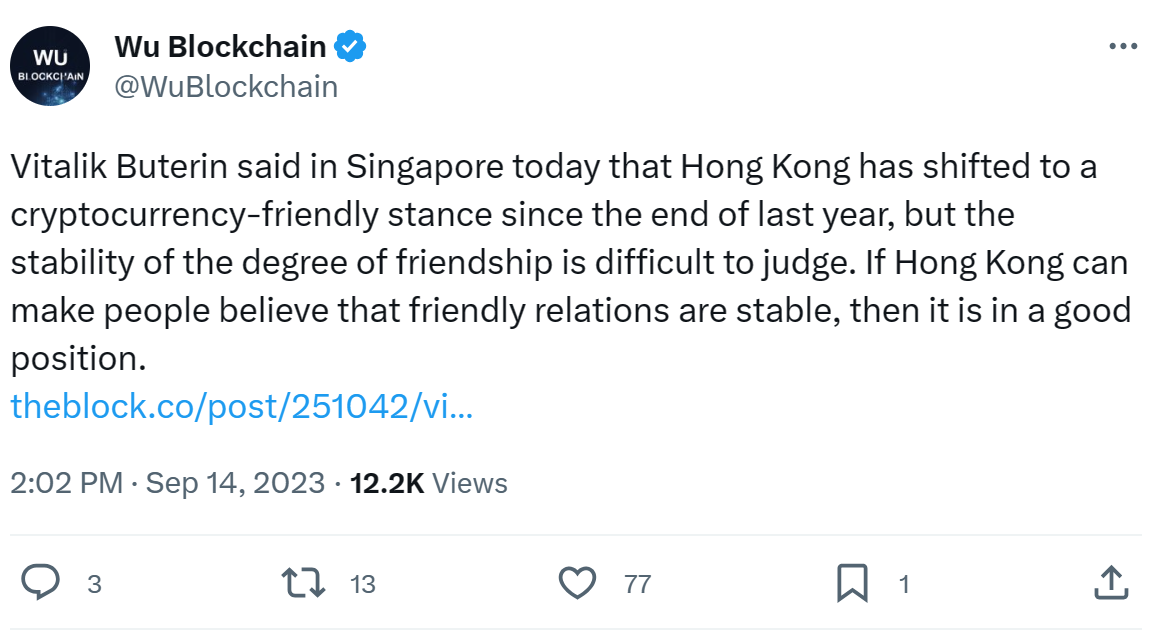Vitalik Buterin On Hong Kong’s Crypto Scene
Ethereum co-founder Vitalik Buterin has emphasized the importance of considering the long-term stability of Hong Kong’s crypto-friendly environment for cryptocurrency projects looking to establish themselves in the region. Speaking at the Web3 Transitions Summit in Singapore, Buterin noted that while Hong Kong currently embraces cryptocurrency activities, it’s crucial for crypto projects to assess the sustainability of this crypto friendliness in the face of potential regulatory, political, and unforeseen events.

Stability of Hong Kong’s Crypto Scene
Buterin expressed his uncertainty about the complex dynamics between Hong Kong and mainland China, acknowledging his limited understanding of the situation. He highlighted that while the current environment in Hong Kong appears favourable for crypto, the key question remains: How stable will this friendliness be in the future?
Unlike mainland China, which has implemented a broader crackdown on cryptocurrency trading and mining, Hong Kong has been proactive in welcoming crypto firms. In October 2022, Hong Kong authorities released a series of policy statements aimed at solidifying the city’s position as a global financial hub. In December of the same year, Hong Kong’s Legislative Council introduced an amendment to establish a comprehensive licensing framework for virtual asset service providers, which came into effect in June.
Buterin’s Asia Tour
Regarding whether Hong Kong’s government would continue its support for the crypto industry, Buterin admitted that he finds it challenging to predict. He stressed that the level of stability in the government’s friendliness toward cryptocurrencies is a critical factor that could determine the city’s attractiveness to crypto projects.
Read More: Tencent Cloud Launches Blockchain RPC For Web3
Buterin, who has been traveling through various Asian countries in recent weeks, expressed his surprise at the engagement level of local developer communities. He commended the research efforts in countries like India, Japan, Taiwan, Palau, and Singapore, particularly highlighting the substantial work on zero-knowledge (ZK) and privacy solutions in Japan and Taiwan. He found the progress in these areas across Asia to be highly impressive.



